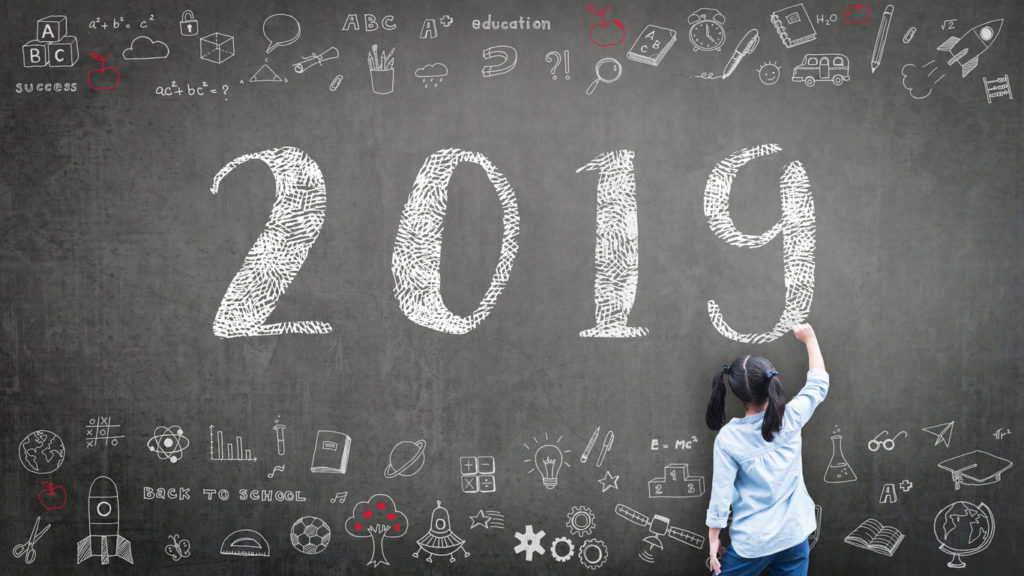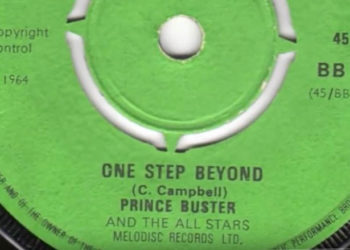No matter who we are or what we do, learning only comes when we’re open to change. What are your lessons learned? Lessons can be big or small, personal or professional, but one thing is sure. Change starts with each of us, individually.
As a final topic for 2019, we asked the Chefs: What did you learn in 2019 and how do you plan to apply it?

Alice Meadows: What I learned this year was less something new and more a reminder of something I already know — and tell other people all the time – but hadn’t really thought about myself for a while. And that’s the value of, for want of a better word, networking. I don’t mean the transactional “you help me I’ll help you” kind of networking, or the “I need to get myself out there so people know who I am” kind. I’m talking about the value of real relationship-building, of nurturing and being nurtured by the people in your professional community.
Some of those people are now my friends rather than just colleagues (you know who you are and I thank you!). But most are people who I know, like, and respect professionally — and who I think feel the same way about me. They’re the ones who I find myself calling on to speak at events I’m involved with, to contribute to blogs and other publications, and to help connect me with others in their own networks. The people whose recommendations I trust even if I only know them via Twitter (and oh the joy of meeting those Twitter colleagues in person when you find yourselves at the same meeting!). They’re also the people I think of when I spot an interesting opportunity — when a recruiter comes calling, or I hear about a new group or organization, or read something thought-provoking.
…the value of real relationship-building, of nurturing and being nurtured by the people in your professional community.
Whether our interaction is in person or virtual, frequent or intermittent, they’re the people who I rely on to help me do my job and who can rely on me to help with theirs. I’m happy to have re-learned the value of having a great professional community network this year — and what better time of year to celebrate the joy of being part of one?
Lettie Conrad: Without disregarding the valuable methodological and empirical knowledge I’ve gained this year in my doctoral program (yes, dear reader, I’m sparing you the academic answer to this question!) — on the whole, the area of growth I must acknowledge for 2019 is in the incredible power of human relationships. Honestly, this a lesson I’ve learned and rediscovered countless times throughout my life, but this year in politics, career, and personal life has really driven home the fact that we need one another more than we need any single other thing.
Growing up, my parents had a mantra when talking about nearly anything related to school, work, neighborhoods, or other communities: “All work happens in the context of relationships.” This may strike you as overly obvious, or perhaps as a bit optimistic. But, unpacking the most private, simple or solitary practices — brushing your teeth? writing in a journal? — we can see the influence on and interdependence with our social systems and customs. This year, my re-learning of this insight comes in the form of my support network, cheering me on through the final stretch of my PhD and opening new doors of opportunity as I consider how to apply this new knowledge. This realization has come to mind as professional relationships enable the work I do with content and technology providers; while my expertise in product design and user experience are key to those engagements, it is through collaborative human connections that we’re able to communicate, ideate, and generate solutions in scholarly communications.
By listening carefully and exercising compassion, patience, and forgiveness, I am better equipped to address the tricky business of optimizing content and digital services for a pleasing researcher experience.
When I start each new project by investing in the people first, the hard work of innovation and development flows more naturally. By listening carefully and exercising compassion, patience, and forgiveness, I am better equipped to address the tricky business of optimizing content and digital services for a pleasing researcher experience. Conversely, where communication breaks down and priorities shift away from these relationship basics, work simply does not get done, at least not to its full potential. This is as true in work as it is in life, and I can only hope for many more years where caring for one another is my top priority.
David Smith: As 2019 draws to a close and my nation, for the third time in four years, is asked to vote on which party will govern the country, I’ve come to understand that facts are no longer sacred.
There are many reasons for this, but I think that there are two core issues at play: The first is that although we are basically all participants in a global information network (whether it be Facebook or Twitter or WeChat, QQ or Weibo, Reddit or Snapchat), we bring a traditional broadcast mental model of how information spreads to our understanding of what reaches us. This is of course, completely wrong.
I’ve come to understand that facts are no longer sacred.
As I write this, a network graph of The UK Labour Party Leader’s connections to a whole bunch of supposedly dodgy and dangerous folk is circulating on Twitter. It looks very impressive (no I’m not linking to it). But a few moments informed analysis shows that this dodgy network, apparently put together by our intelligence services, is his staff and advisers, a bunch of left-wing think tanks, a couple of union leaders, some Labour Party MPs, and over there in the distance, Karl Marx. A relatively popular National Newspaper has propagated this into the social network where it’s doing its job. And the job is information warfare. This is the second core issue.
The bad actors DO understand the information flows through networks. They’ve figured out the algorithms and the business models; who is susceptible to what sort of influence, and where that might be important, and where not. And business is good. We are half a decade into this world. Another US election cycle looms into view. The real money is there and so the next generation of techniques are already being worked on, ready for deployment. Over here, one of the political parties took on the identity of an independent fact checking organization for an evening, in order to inject propaganda into the social network — tweets and Facebook posts. It was spotted pretty quickly. Didn’t matter. Quite the tactic for a liberal democracy.
We need to be paying a lot more attention to the ways in which the information we put out is used. We need to be thinking about how we support our authors and societies when the bad actors show up.
And we are in the facts business. More facts to more people — free to use. Distribute it earlier. Decouple the curation, the filtering mechanisms, the human judgement. We need to be paying a lot more attention to the ways in which the information we put out is used. We need to be thinking about how we support our authors and societies when the bad actors show up. What happens when a government shows up and says — “those facts, not for our people”. I’m going to be thinking about that in 2020.
Alison Mudditt: Like many of us, I have an incredibly busy high-stress, high-reward job in which I am constantly juggling multiple demands and challenges. And as I get older, I’m more aware of the negative effects of that on my overall health and, equally importantly, in my ability to show up the way I want to at both work and home. And so over the past few months, I’ve been teaching myself to meditate.
There’s an increasing amount of science the backs the benefits of meditation and my coach suggested that I try it as a way to balance the stress of work. I’ve been using the Headspace app, which has a whole range of different guided meditations and programs. What have I learned so far? Meditation looks deceptively simple but takes practice and is really difficult! It requires an active training of the mind to increase mindfulness, concentration and resiliency – all of which are in short supply in our modern world. My mind still wanders about and I sometimes find it hard to relax but learning to overcome this is part of the training.
What have I learned so far? Meditation looks deceptively simple but takes practice and is really difficult! It requires an active training of the mind to increase mindfulness, concentration and resiliency
Another challenge can be fitting it into an already packed day, and so I’ve taken to setting my alarm 15 minutes earlier. I spend more time when I can but find that the regularity of this practice is helpful. I’m still early in my learning but I can already notice some benefits, such as switching off more effectively from the stresses of the day and sleeping better. It’s been enough to convince me that it’s worth building and deepening my skills. It’s not a quick fix for everything, but I see it as an important tool – alongside healthy eating and exercise – to help me build a balanced life in which I can be my best self both at work and for my family and friends.
Judy Luther: Several thoughts come to mind as I reflect on this past year. Although digital change occurs incrementally, the year 2019 accelerated conversations about economic models, expanded use of preprints, and a wider range of born digital formats. Observations led to conclusions about both challenges and opportunities for scholarly publishers, academic institutions and societies.
Although digital change occurs incrementally, the year 2019 accelerated conversations about economic models, expanded use of preprints, and a wider range of born digital formats.
Increasing pressures on scholarly societies:
- Plan S is forcing publishers to address open access, prompting many societies to consider outsourcing their journals to commercial publishers. Transformative agreements can work at scale but may not work for smaller publishers and many consortia.
- Professional meetings are recording a video of every session and making them available to both attendees and those unable to attend for an additional fee. Inclusion of the digital form posters presented at meetings in these databases as well as in institutional repositories extends their utility.
- Peer review of preprints is growing and encroaching on the role of traditional publishers to vet the report on the research outcomes. Tension between the need for speed and comfort with transparent review will vary across disciplines.
Opportunities for societies:
- Societies are in a unique position to expand to their service to early career professionals by considering capturing different formats of their output early in the research process.
- Societies can rethink the value of their “publications” to a global audience and the value proposition for membership. This will vary by discipline, size and focus.
These factors may prompt societies to assess their potential market and how their content is designed to meet the needs of a broad range of readers. This could include evaluating the needs of scholars in the discipline and thinking creatively about new services and how to meet current and future needs of their market.
Jasmine Wallace: This was a very intense year, filled with amazing opportunities such as joining the Kitchen to launching open peer review, and I learned a ton; but the most valuable lesson I learned was time management.
Toward the beginning of the year I found time escaping me, and as the year progressed it was getting harder to monitor and manage. Although organization has always been one of my strengths, this year required me to be more efficient in the use of my focus and time than ever before. Therefore, in a way I had to go back to my foundation and learn new organizational skills. One of the first decisions I made was to get a new planner and use it regularly. Initially, I would loosely use my planner or use the calendar on my phone, quickly jotting down dates and appointments. In the past, it was enough to just know what I had to get a task done and by when, but not anymore. However, I found the time in my days was shrinking, while the items on my to-do list continued to grow.
…the most valuable lesson I learned was time management.
It was not until I began to sit down and write in my planner each and every daily, weekly or monthly event that I began to truly get better control of my time. As soon as I started writing in my planner it became easier to see where I was using my time, it became easier for me to visualize not just what I had to do, but also help me to see how to make better use of my time. Now I’m still no expert in this space but moving into the new year, I have already starting using a new planner which is a start in the right direction. I also now have a designated day that I sit down on a weekly basis to check-in with my planner and make sure I am properly prioritizing items on my calendar and to-do lists. And I also want to better delegate task to my team, so that I can free up time so that next year I can focus on more complicated tasks and projects. And lastly, I’m looking forward to using some of the time management software tools.
…in 2019, I’ve begun to think that perhaps impact and engagement are being more creatively and dynamically supported in countries that, ironically, have taken a less rule-bound approach.
Charlie Rapple: Black holes are emerging as we try to evolve the ways in which knowledge is communicated. Open access and access control for scholarly articles continue to suck in so much of the debate, when arguably we should be focused not on who has access to the scholarly content, and how – but on incentivizing the creation of more non-scholarly content with more focus on real-world impact. That said, there are black holes in relation to impact, too — in the UK, for example, the REF process continues to consume so much resource that other forms of progress around impact and engagement are stymied; in 2019, I’ve begun to think that perhaps impact and engagement are being more creatively and dynamically supported in countries that, ironically, have taken a less rule-bound approach.
Ann Michael: Looking back on all the Chefs’ responses, there’s a mix of personal revelations, going back to basics, and focusing on the world around us. For me, my lessons learned are in the going back to basics category.
First, 2019 has made me remember that no matter how much you think you have the full picture, you’re always missing something — sometimes something critical. As I go into 2020, my plan is to remember this and to ask even more questions than I already do (sorry to those of you that deal with me on a regular basis!). My goal is to listen more and to verify facts (yes, David — facts should be sacred) and to continually seek to understand differing perspectives. I’m not advocating “analysis paralysis” nor am I advocating that we should not trust, but sometimes slowing down is the best way to take it all in and give yourself some space to put it all together.
There is so much to read and to learn, so many fascinating people and organizations, so many avenues for expanding our view, that we need to remember that there is no way we can do it all.
2019 has also reminded me to use my time strategically. “No” is a valid answer. There are so many exciting and challenging developments in our industry. There is so much to read and to learn, so many fascinating people and organizations, so many avenues for expanding our view, that we need to remember that there is no way we can do it all. In 2020, I will be more discriminating with my time. I will learn to say no — first to myself (since I always want to do everything!) and then to demands on my time that pull me too far afield from my core focus. What 2019 has reminded me is that when you allow everything on your plate, you increase your stress, decrease your sense of accomplishment, and put yourself in danger of moving too fast (see above).
Now it’s your turn! What did you learn in 2019 and how do you plan to apply it?
Discussion
4 Thoughts on "Ask The Chefs: 2019 Lessons Learned"
Charlie Rapple: “Open access and access control for scholarly articles continue to suck in so much of the debate, when arguably we should be focused not on who has access to the scholarly content, and how – but on incentivizing the creation of more non-scholarly content with more focus on real-world impact.”
Surely “real-world impact” is a direct function of “(w)ho has access to the scholarly content, and how.” Bob Metcalf is correct: The value of a network is the number of users squared.
Hi Jim, no, I don’t think real-world impact derives from scholarly content. It derives from “non-scholarly” content – materials and messaging that are specifically developed for real-world target audiences – leaflets for patients, consultancy with industry, apps for school children or farmers in developing countries – etc. Of course, the scholarly content can also indirectly lead to real-world impact, when other academics take forward your work and then create real-world impact that has your work in its DNA. So yes, of course, some real-world impact is a function of access to scholarly content. But we would be kidding ourselves if we thought scholarly content, and access to it, are enough of a pathway to impact, by themselves.
David Smith for the win.
Indeed. Disinformation has been the norm in China (“the only truth in the People’s Daily is the date”) and elsewhere, and caution toward any information becomes ingrained to the point that one might believe nothing. Watching disinformation campaigns unfold large-scale in the west has been disheartening, though I am glad that people are realising that it is an issue.


